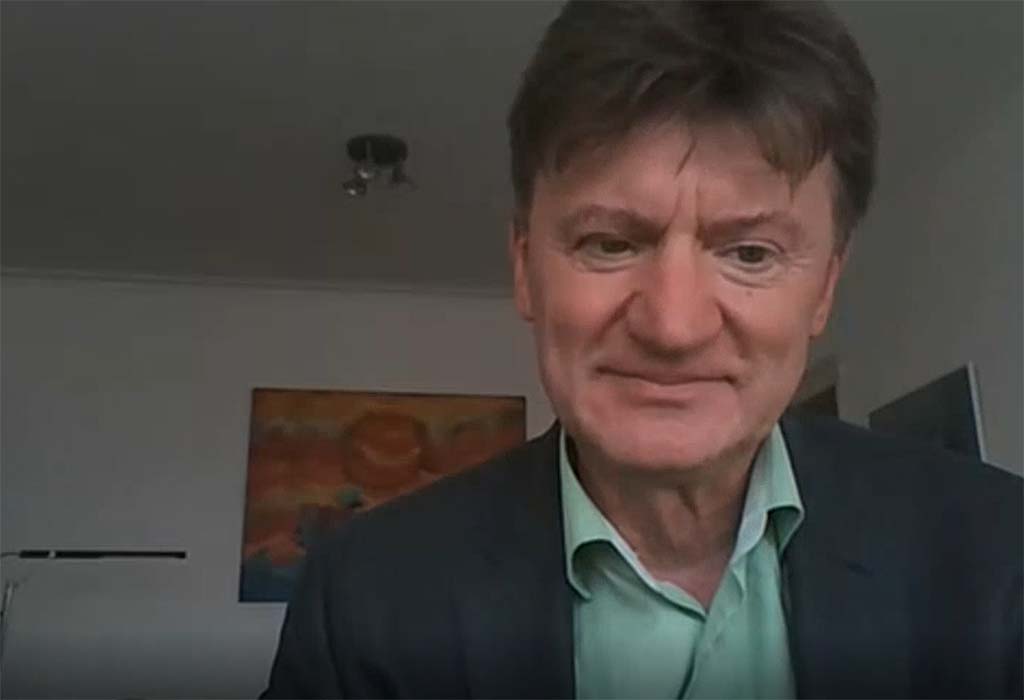The 26th Conference of the Parties to the United Nations Framework Convention on Climate Change begins on 1 November, after being postponed for a year due to the global impacts and
restrictions caused by the COVID-19 pandemic.
In the framework of this new summit, we interviewed Bernhard Zymla, GIZ Coordinator for EUROCLIMA+ about the expectations and challenges of the next COP.
What would be the ideal outcomes for a next COP?
First of all, that all party countries accept the climate catastrophe that is already visible, and that they all commit to the complete decarbonisation of their countries. This goes far beyond the implementation of the NDCs, because these are not enough. Rather they must aim to transform all sectors of the economy. It is not just about specific sectors such as energy and transport, but about all productive sectors, buildings, cities, agriculture, etc.
I would also like to see an emphasis or call to action for social processes. It is important to discuss transparency, good governance, consideration of vulnerable groups, and fairer burden sharing to define the first approaches to solutions. Of course, this also includes specific financial transfers from richer to poorer countries, and it also includes the financing of very concrete, targeted investments.
We also need concrete commitments from the States that also finance, concrete commitments from the countries that are more advanced to show the way to decarbonisation, and also financial commitments for the countries that are on the road to development and their plans.
Finally, I hope for action. It seems to me that this is what is missing, the implementation of concrete climate change mitigation actions and adaptation solutions.
We look forward to ending COP with greater clarity on targets, on the contributions of all party States, and clear roadmaps for tackling climate change.
A new vision for climate action
A key outcome of COP would be to achieve a new vision for sustainable transformation. Something like a global green deal, that would be a really important breakthrough. A shared vision that allows party States to adapt the ideas of decarbonisation to their own realities. We need concrete action plans, because what we are doing today is not enough.
Another key issue is the private sector, which needs and demands clear targets from governments and also from the climate action framework so that they can adapt their activities to the challenges of the future. A policy is needed that shows the private sector what is required from them, what specific targets are needed, and what timeframes are needed to transform production and products. But this must be considered globally, in order to achieve market equilibrium.
The private sector has many opportunities for new businesses and there are also many committed companies, but we need more and more, for businesses that have the zero emissions target and those that offer solutions to reduce the effects of climate change. There is a very big space and also on the other side the right legislative framework is needed, the ecosystem for these companies.
What issues do you see as key to addressing from the perspective of what EUROCLIMA+ and GIZ are doing?
Like GIZ, at EUROCLIMA+ we work on strategic sectors and issues, transport, energy, forests, biodiversity and ecosystems, climate finance, multi-level and multi-stakeholder coordination, and our presence at the COP seeks to address these issues, to contribute to providing a broader picture. With our activities we also aim to exemplify with experiences, to show that there are solutions, that there are valuable experiences and how these give us lessons to be able to replicate and expand them to macro levels.
For this, as a GIZ team at EUROCLIMA+ we participated in the organisation of eleven side-events at COP26, which we hope will contribute to the discussion at various levels and topics.
|
Name of the event |
Date and time (GMT) |
Place |
|
Closing the climate finance gap on the ground: solutions for the development of bankable projects and compatible financial instruments |
03/11/2021 |
EUROCLIMA+ Pavilion |
|
Accelerating private sector climate ambition in Latin America: Opportunities and challenges of sectoral decarbonisation roadmaps. |
04/11/2021 |
EUROCLIMA+ Pavilion |
|
Long-term climate strategies: Experiences and perspectives in Latin America |
05/11/2021 |
EUROCLIMA+ Pavilion |
|
How to make Green Recovery work? Experiences from Latin America and the Caribbean and the role of international cooperation |
08/11/2021 |
NDC Partnership Pavilion |
|
Climate resilient crops for future food security and livelihoods |
08/11/2021 |
Innovation Hub |
|
Nutrition and core health needs in the Andean Region |
09/11/2021 |
Innovation Hub |
|
Scaling up nature-based solutions in Latin American and Caribbean public policies |
10/11/2021 |
EUROCLIMA+ Pavilion |
|
Latin America seeks funding for the climate-resilient transformation of its agricultural sector |
11/11/2021 |
EUROCLIMA+ Pavilion |
|
Climate action in the transport and urban mobility sector. |
11/11/2021 |
EUROCLIMA+ Pavilion |
|
Climate ambition: new national commitments in Latin America and the Caribbean |
11/11/2021 |
EUROCLIMA+ Pavilion |
|
Supporting multi-level cooperation for implementation of transport strategies in NDCs |
12/11/2021 |
European Union Pavilion |
And what are the expectations after the COP?
Beyond the COP, it is essential to move beyond the discussion of more ambitious NDCs, and to advance in the design of roadmaps for Long Term Climate Strategies (LTCS), where all sectors are involved, not just environmental ministries. There is also an opportunity here for international cooperation, and to support these processes for the engagement of various stakeholders.

